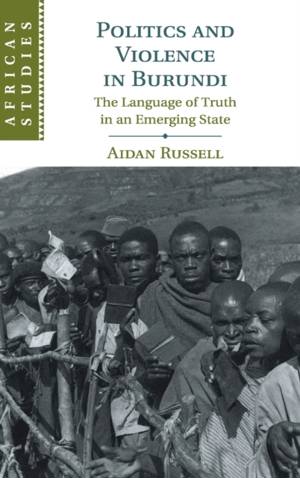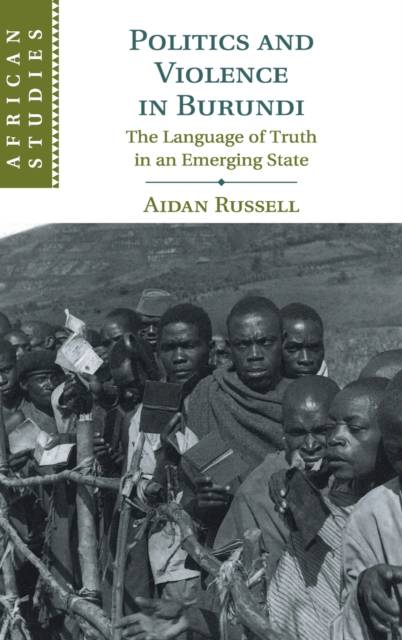
Je cadeautjes zeker op tijd in huis hebben voor de feestdagen? Kom langs in onze winkels en vind het perfecte geschenk!
- Afhalen na 1 uur in een winkel met voorraad
- Gratis thuislevering in België vanaf € 30
- Ruim aanbod met 7 miljoen producten
Je cadeautjes zeker op tijd in huis hebben voor de feestdagen? Kom langs in onze winkels en vind het perfecte geschenk!
- Afhalen na 1 uur in een winkel met voorraad
- Gratis thuislevering in België vanaf € 30
- Ruim aanbod met 7 miljoen producten
Zoeken
€ 183,45
+ 366 punten
Omschrijving
Telling the neglected history of decolonisation and violence in Burundi, Aidan Russell examines the political language of truth that drove extraordinary change, from democracy to genocide. By focusing on the dangerous border between Burundi and Rwanda, this study uncovers the complexity from which ethnic ideologies, side-lined before independence in 1962, became gradually all-consuming by 1972. Framed by the rhetoric and uncertainty of 'truth', Russell draws on both African and European language source material to demonstrate how values of authority and citizenship were tested and transformed across the first decade of Burundi's independence, and a post-colony created in the interactions between African peasants and politicians across the margins of their states. Culminating with a rare examination of the first postcolonial genocide on the African continent, a so-called 'forgotten genocide' on the world stage, Russell reveals how the postcolonial order of central Africa came into being.
Specificaties
Betrokkenen
- Auteur(s):
- Uitgeverij:
Inhoud
- Aantal bladzijden:
- 330
- Taal:
- Engels
- Reeks:
- Reeksnummer:
- nr. 145
Eigenschappen
- Productcode (EAN):
- 9781108499347
- Verschijningsdatum:
- 17/10/2019
- Uitvoering:
- Hardcover
- Formaat:
- Genaaid
- Afmetingen:
- 167 mm x 234 mm
- Gewicht:
- 544 g

Alleen bij Standaard Boekhandel
+ 366 punten op je klantenkaart van Standaard Boekhandel
Beoordelingen
We publiceren alleen reviews die voldoen aan de voorwaarden voor reviews. Bekijk onze voorwaarden voor reviews.









